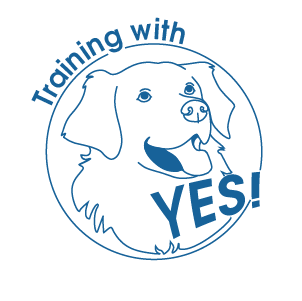
In an increasingly hectic world, the role of animals in human lives has never been more important. Among these incredible creatures, support dogs stand out, offering essential services to those who need emotional, physical, and psychological support.
While various training methods exist, the YES method has gained popularity for its positive reinforcement techniques that encourage learning through affirmation and success rather than correction. This approach not only strengthens the bond between humans and animals but also plays a pivotal role in fostering a more compassionate, inclusive, and healthy society. Let’s explore how support dogs trained using the YES method are creating a better world.
What is the YES Method?
The YES method is rooted in the principles of positive reinforcement. It is a training approach that focuses on rewarding desired behaviors, marking these moments with a simple but powerful “Yes” when the dog does something right. This acknowledgment is often followed by a treat, toy, or verbal praise. The concept behind the method is to encourage dogs to repeat actions that lead to rewards, reinforcing positive behavior without fear or punishment.
The simplicity of the YES method, paired with its efficacy, makes it an ideal approach for training support dogs, who must not only learn specific commands but also develop a strong emotional connection with the individuals they serve. Support dogs trained with this method grow confident, cooperative, and eager to assist, leading to improved outcomes for the people who depend on them.
The Role of Support Dogs in Society
Support dogs serve a wide range of functions. From guiding the visually impaired to assisting individuals with mobility challenges, or providing comfort to those suffering from anxiety, depression, or PTSD, these dogs become invaluable companions. As they take on roles traditionally filled by caregivers, therapists, or even technology, they help foster independence, dignity, and emotional well-being for people across different walks of life.
However, support dogs are not merely functional companions—they also help reshape how society views disability and mental health. By existing as highly visible symbols of assistance, patience, and unconditional love, these dogs bring attention to the importance of inclusivity and support systems for those with unique needs.
Why the YES Method is a Game-Changer for Support Dog Training
1. Fostering Trust and Emotional Bonding
The essence of any relationship, human or canine, is trust. The YES method fosters trust by creating a positive learning environment. Since support dogs need to have an unshakeable bond with the people they assist, trust is crucial. The Yes! method allows trainers and dog owners to build that relationship without the fear or stress associated with negative reinforcement techniques.
Positive reinforcement helps dogs view their human partners as sources of safety and comfort. This makes them more responsive to cues and commands, especially in high-pressure or emotionally charged situations where quick and accurate responses are critical. When a support dog is comfortable and trusting, it is more likely to act calmly and reliably when their partner needs them the most.
2. Creating Confident, Autonomous Dogs
Support dogs often need to make decisions independently. Whether guiding a blind person through a crowded street or recognizing early signs of a panic attack, these dogs must be confident in their actions. The YES method nurtures this confidence by encouraging dogs to take initiative in a positive and controlled environment. The act of rewarding desired behavior without fear of punishment allows them to develop autonomy, which is essential in their roles as support animals.
Through positive reinforcement, dogs learn that they are capable of problem-solving and can trust their instincts. This empowers them to respond more effectively to complex or unfamiliar situations, ensuring their partners receive the support they need.
3. Reducing Stress for Dogs and Handlers
The responsibilities that come with being a support dog can be demanding. The YES method, with its focus on praise and rewards, makes learning an enjoyable and fulfilling process. Instead of becoming stressed or anxious during training, dogs associate their work with positive outcomes, making them more relaxed and eager to participate.
The low-stress approach also benefits the handlers or people who rely on these dogs. Working with a dog trained using the Yes! method tends to be a more pleasant and less frustrating experience. Since the method encourages positivity on both ends of the leash, it builds a harmonious partnership where human and animal learn from and grow with each other.
4. Supporting Mental Health and Emotional Well-Being
One of the key roles of support dogs is aiding individuals with mental health challenges, including anxiety, depression, PTSD, and autism. For these individuals, the bond with their support dog can be life-changing. The emotional stability and companionship provided by the dog can reduce symptoms of loneliness, fear, and stress.
Dogs trained with the YES method tend to exhibit calmer, more predictable behavior, which is especially important for individuals with mental health challenges. They are better equipped to read their handlers’ emotions and respond appropriately, offering comfort during moments of distress. The gentle, positive training they receive makes them especially suited for these roles, where emotional sensitivity and calm demeanor are paramount.
Building a More Inclusive and Compassionate Society
Support dogs trained using the YES method play a unique role in promoting a more inclusive and compassionate society. By assisting individuals with disabilities and mental health challenges, they help break down social stigmas and foster acceptance of diverse needs. They encourage communities to be more mindful of accessibility and inclusivity, challenging perceptions of disability as a barrier to independence and contribution.
Furthermore, the method’s principles of kindness, patience, and positive reinforcement can serve as a broader metaphor for how society should treat its most vulnerable members. It demonstrates the power of positive interaction and support in nurturing growth and success—not just in animals, but in people too.
A World Made Better by Support Dogs
It’s clear that support dogs, particularly those trained using the YES method, are making a profound impact on the lives of countless individuals. By empowering people with disabilities, promoting emotional well-being, and fostering a deeper sense of connection between humans and animals, these dogs are helping to build a better, more compassionate world. Their roles in society extend beyond service—they serve as ambassadors for kindness, patience, and mutual support, values that are essential in any thriving community.
The YES method’s philosophy of reinforcement through success rather than punishment not only builds better-trained dogs but creates positive relationships that ripple outward into society. By helping one person at a time, these dogs are, in their own way, changing the world for the better—paving the way for a future where empathy and understanding lead the way.
In the end, the true magic of the Yes! method lies not just in its ability to train dogs, but in its ability to create partnerships that inspire everyone around them. And in a world that so often feels divided, that is something we all can celebrate.

